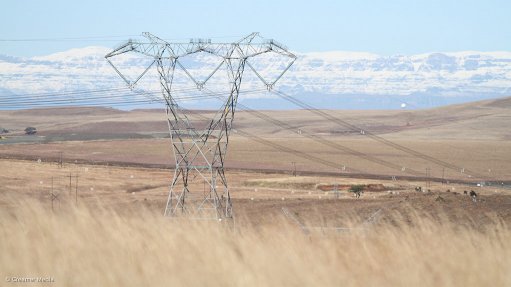
Photo by: Duane Daws
Ratings agency Moody’s Investors Service has affirmed State-owned power utility Eskom’s Ba1 senior unsecured and senior unsecured medium-term notes’ ratings, while simultaneously assigning to Eskom a national scale rating of A2.za.
The outlook on both ratings is negative.
In its statement, Moody’s cites Eskom’s continued successful access to funding with the support of the R350-billion guarantee framework agreement (GFA) provided by government and the company’s stabilised operational performance as the rationale for affirming its rating.
Owing to improved operational performance, Eskom has not implemented load-shedding since August 2015.
In September, Moody’s placed Eskom on review for downgrade; however, that has been revised to a negative outlook indicating the potential for the company’s outlook to be revised to stable if government approves Eskom’s request to extend the utilisation period of the GFA currently scheduled to expire on March 31.
That process is currently under way. The outlook could also be revised if Moody’s changes the government’s outlook from negative to stable.
To date, Eskom has successfully secured 86% of the funding requirement for the 2016/17 financial year and 28% of the funding requirement for the 2017/18 financial year. The company has also achieved significant improvements on its financial ratios and expects further improvements in the next five years.
Commenting on the ratings action by Moody’s, Eskom CFO Anoj Singh said: “We are encouraged by Moody’s decision to affirm Eskom’s credit ratings; we view this action as evidence that we have made major strides in ensuring a secure electricity supply and in improving the company’s financial profile, thereby enabling us to continue with timeously executing the required funding for the completion of the current build programme”.